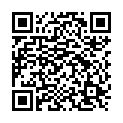|
|
|
| Module code: DFBME-408 |
|
|
4VU (4 hours per week) |
|
4 |
| Semester: 4 |
| Mandatory course: no |
Language of instruction:
Spanish |
Assessment:
Written exam (50%) and tests over the course of the semester (50%)
Written exam 90 min.
[updated 30.04.2025]
|
DFBEES-414 (P610-0625) Electrical Engineering - Renewable Energy and System Technology, Bachelor, ASPO 01.10.2019
, optional course
DFBME-408 (P610-0343, P610-0628) Mechanical Engineering, Bachelor, ASPO 01.10.2019
, mandatory course
DFBME-408 (P610-0343, P610-0628) Mechanical Engineering, Bachelor, ASPO 01.10.2024
, semester 4, optional course
DFITM-409 (P620-0635) International Tourism Management, Bachelor, ASPO 01.10.2020
, semester 4, optional course
DFIW-406 (P610-0627) Computer Science and Web Engineering, Bachelor, ASPO 01.10.2019
, semester 4, optional course
DFILM-418 (P620-0633) International Logistics Management, Bachelor, ASPO 01.10.2022
, semester 4, optional course
DFIM-416 (P620-0631) German-French and International Management, Bachelor, ASPO 01.10.2019
, semester 4, optional course
|
60 class hours (= 45 clock hours) over a 15-week period.
The total student study time is 120 hours (equivalent to 4 ECTS credits).
There are therefore 75 hours available for class preparation and follow-up work and exam preparation.
|
Recommended prerequisites (modules):
None.
|
Recommended as prerequisite for:
|
Module coordinator:
Dr. Julia Frisch |
Lecturer:
Dozierende des Studiengangs
[updated 21.06.2024]
|
Learning outcomes:
The initial level is A2+/B1, the targeted level B1+.
After successfully completing this module, students will:
be able to reproduce content from films, articles and interviews
be able to understand and make suggestions for organizing their leisure time and work and will be able to reject and accept them
be able to create their own graphics and tables
be able to extract arguments and justifications from discussions (audio/video/simulations) and use them in pro/con arguments to express their own position
be able to write their own short fictional texts
[updated 08.01.2024]
|
Module content:
The content builds on that of Spanish 3.
Consolidating the subjunctive + using subjunctive tenses
Indirect speech
Conditional sentences with si, relative pronouns
Reciprocal verbs
Formulating descriptions, content renditions, interpretations
The ability to extract meaning from simple fictional texts, newspaper articles and factual texts
Regional studies: The history of Spain and the Spanish-speaking world
[updated 08.01.2024]
|
Teaching methods/Media:
The learning content is developed in a communicative and action-oriented manner with targeted listening, reading and speaking exercises in individual, partner and group work. A subject-related presentation on the course content is obligatory.
Short written or oral progress tests are a component of the course.
[updated 08.01.2024]
|
Recommended or required reading:
Multimedia-supported teaching and learning material to intensify teaching will be provided in the course and via Moodle.
[updated 08.01.2024]
|

